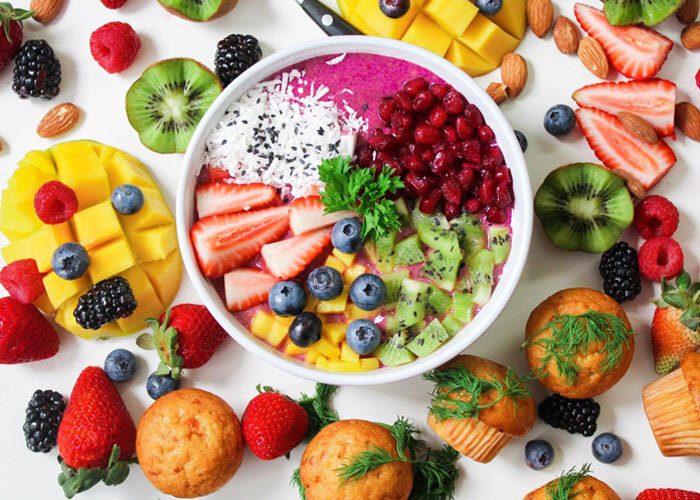Are you a new mother recovering from your delivery? There are certain foods to eat postpartum that’ll help in your recovery. After hours into a labour marathon, or a C-section, a woman burns hundreds of calories. She needs healthy food to regain her strength and energy. The initial weeks, especially with the baby, can be mentally, physically, and emotionally tiring.
It is natural to feel responsible toward the newborn, but at the same time, your health and diet also equally matter. Moreover, the mother’s health is directly proportional to the baby’s health, particularly when you are breastfeeding.
We have got you a list of the best postpartum foods to keep your health in check.
Foods To Eat Postpartum
Oats
Oats have plenty of iron, calcium, carbohydrates, and proteins. In addition, its high-fibre content keeps constipation away. You can give it a boil in milk and add nuts, dried fruits or fresh fruits. Alternatively, try out oats upma or khichdi for a savory version.
Pulses & Lentils
For a well-balanced diet, do not skip these significant sources of protein, fibre, minerals and vitamins. Include moong and masoor dal in your diet. Besides being easy to digest, they also prevent fat accumulation.
Turmeric and Dry Ginger Powder
The richness of vitamins B6 and C, potassium, fibre, manganese and magnesium in turmeric and dry ginger powder makes them great healing ingredients. Add half a teaspoon of turmeric to a glass of warm milk.
Dry ginger powder is anti-inflammatory and best consumed as ladoos or adding it in chutneys and curries.
Seeds
Include seeds like carom (ajwain), fenugreek (methi), cumin (jeera), and sesame in your daily diet. Most are rich in iron, calcium, manganese, magnesium, vitamins and minerals. You can consume them as ladoos or energy bars or add them to dishes as seasonings.
Traditionally, seeds like ajwain can be a boon in stimulating breastmilk production and contracting the uterus. Based on scientific evidence, ajwain or carom seeds have antibacterial, antioxidant, antiseptic and antifungal properties.
Finger Millet For Foods To Eat Postpartum
Known as ragi or nachni in Hindi, finger millet is another reliable source of iron and calcium. It allows for regaining strength post-birth. If you are allergic to milk/dairy products, ragi is an excellent alternative for a calcium source. You can consume them as rotis, halwa, idlis or dosas. This superfood is a must in your list of foods to eat postpartum.
Nuts
Nuts are plant-based fats with protein, making for a perfect evening snack. Fat is essential for your body’s repair function. It also boosts your milk production and metabolism.
Whole Sprouted Grains For Foods To Eat Postpartum
Sprouted grains like wheat, jowar and ragi are healthier and work as excellent energy boosters postpartum. You can prepare a sprouted grain salad or add them to dry grains and grind them to make porridge.
Fresh Vegetables and Fruits
Leafy greens like spinach, amaranth leaves, lettuce, fenugreek etc., are rich in Vitamin A and essential for both mother and child. Additionally, they make the perfect non-dairy source of iron, calcium, and Vitamin C.
Also, add fresh fruits like apples, oranges, and bananas to your postpartum diet and ensure you and your baby get enough vitamins and antioxidants.
Plain Greek Yoghurt
Add Greek yoghurt (plain) to your breakfast for protein and fats. For extra nutrient intake, top it with nuts or berries.
Eggs
If you are looking for protein-filled foods to eat postpartum, add a good number of eggs to your diet. Easy to make and delicious, eggs contain plenty of vitamins and minerals that support postpartum recovery.
Significance Of Postpartum Nutrition (Foods To Eat Postpartum)
Most women wonder why is it essential to know which foods to eat postpartum. You carried a life inside and added extra fluid, fat and tissue to support the little one for nine months!
Your body undergoes a magical transformation, consuming a lot of strength and energy during pregnancy and childbirth. Proper postpartum nourishment is essential for your metabolism and breastmilk production.
All in all, here are some benefits of adequate postpartum nutrition:
- Speeds recovery: A nutrient-rich balanced diet with fibre, proteins, carbs, and healthy fats allows your body to heal. Furthermore, it protects your body from bone loss, restores iron content and avoids haemorrhoids.
- Boosts milk production: The foods you eat postpartum contribute to the quality and quantity of milk supply.
- Ensures overall wellbeing: A balanced diet after childbirth gives you ample stamina to play the role of a busy mother.
In Conclusion
Knowing what foods to eat postpartum and implementing them in your daily diet goes a long way in getting back your energy and strength. Another important reason to eat healthily is that what you eat passes to your baby when you breastfeed. We know you want only good things for your little one, so eat healthy and stay happy.
Also read:






